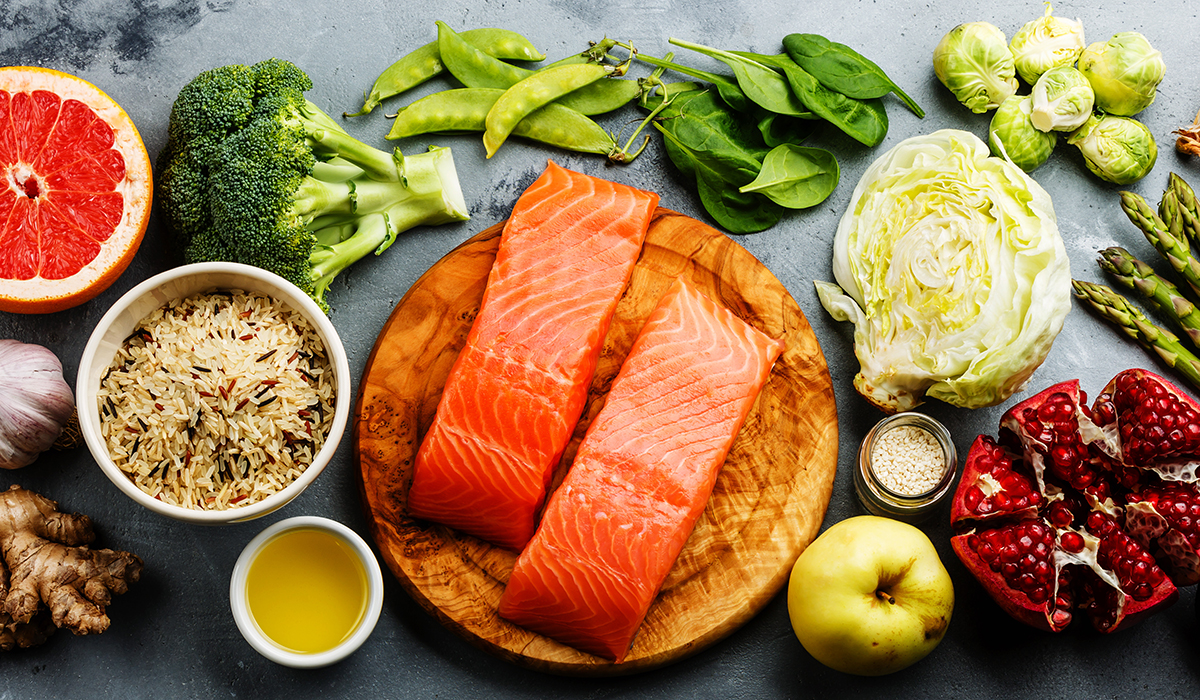9 Best Vitamins for Your Health: Essential Benefits and Sources
Navigating the world of vitamins can feel overwhelming with so many options promising various health benefits. Whether you’re aiming to boost your immune system, improve your skin, or enhance overall wellness, knowing which vitamins are truly essential is crucial.
In this article, you’ll discover the 9 best vitamins that can make a significant impact on your health. From Vitamin D to Vitamin B12, each one plays a unique role in keeping you at your best. Ready to elevate your well-being? Let’s dive into the must-have vitamins you should consider adding to your daily routine.
1. Vitamin D: The Sunshine Vitamin
Vitamin D is known as the sunshine vitamin because your skin produces it when exposed to sunlight.
Benefits of Vitamin D
Enhances calcium absorption, helping to maintain strong bones and teeth. Boosts immune system function, reducing the risk of infections. Supports mental health by combating depression and anxiety. Reduces the likelihood of developing chronic diseases like heart disease and diabetes.
Best Sources of Vitamin D
Sunlight is the most natural source, with 10-30 minutes of midday exposure usually sufficient. Foods such as fatty fish (like salmon and mackerel), fortified dairy products, and egg yolks are rich in vitamin D. Supplements can also be effective, especially in regions with limited sunlight exposure or for individuals with higher needs.
2. Vitamin C: The Immunity Booster
Vitamin C, or ascorbic acid, is essential for your body’s repair and growth. It’s particularly known for its role in bolstering your immune system.
Health Benefits of Vitamin C
Boosts Immunity: Vitamin C strengthens your immune defenses by encouraging white blood cell production. This helps ward off infections.
Antioxidant Power: It acts as a powerful antioxidant, protecting your cells from harmful free radicals. This may reduce chronic disease risk.
Improves Skin Health: Vitamin C supports collagen synthesis, leading to healthier, more youthful-looking skin. It can aid in wound healing as well.
Enhances Iron Absorption: It increases the absorption of non-heme iron from plant-based foods, which is crucial for preventing anemia.
Natural Sources of Vitamin C
Citrus Fruits: Oranges, lemons, and grapefruits are well-known sources. A single orange can provide over 70 mg of Vitamin C.
Bell Peppers: Red bell peppers pack nearly three times as much Vitamin C as an orange, making them a fantastic option.
Leafy Greens: Kale, spinach, and other dark leafy greens offer generous amounts of Vitamin C along with other nutrients.
Berries: Strawberries, raspberries, and blueberries not only taste great but also provide a healthy dose of Vitamin C.
Other Sources: Tomatoes, broccoli, and Brussels sprouts also contribute significant Vitamin C to your diet.
3. Vitamin B12: The Energy Vitamin
Importance of Vitamin B12
Vitamin B12 is crucial for energy production and red blood cell formation. It helps maintain healthy nerve cells and aids in DNA synthesis. Deficiencies can lead to anemia, fatigue, memory issues, and mood disturbances. Ensuring adequate intake is especially important for vegans and older adults who might face absorption challenges. Good levels of Vitamin B12 support your overall energy and well-being.
How to Get Enough B12 in Your Diet
You can find Vitamin B12 in animal products like meat, fish, dairy, and eggs. For vegans, fortified foods such as plant-based milks, breakfast cereals, and nutritional yeast are excellent sources. Taking a B12 supplement can also be effective, especially if you have dietary restrictions or absorption issues. Regularly consuming these sources helps maintain optimal B12 levels.
4. Vitamin A: The Vision Enhancer
Vitamin A is essential for maintaining your vision and supporting immune function.
Advantages of Vitamin A
Improves night vision. Vitamin A produces pigments in the eye’s retina, aiding night vision.
Strengthens the immune system. It boosts the body’s defenses against illnesses by enhancing white blood cell production.
Promotes skin health. Vitamin A helps repair and maintain healthy skin tissues, preventing acne and dryness.
Supports reproductive health. This vitamin is crucial for the normal functioning of the reproductive system in both men and women.
Top Food Sources
Carrots. Packed with beta-carotene, carrots are a premier source of Vitamin A.
Sweet potatoes. One medium sweet potato provides over 400% of your daily Vitamin A needs.
Spinach. This leafy green offers a substantial amount of Vitamin A along with iron and other nutrients.
Liver. Beef liver is an excellent source, providing more than double the daily requirement in just one serving.
Eggs. A versatile and accessible source of Vitamin A, especially in the yolks.
5. Vitamin E: The Antioxidant Power
The Role of Vitamin E in Skin Health
Vitamin E’s powerful antioxidant properties protect your skin from damage. It neutralizes free radicals that accelerate aging and cause various skin issues like wrinkles and fine lines. Regular use of vitamin E improves your skin’s hydration, resulting in a more youthful and resilient appearance. Additionally, it aids in healing scars and minimizing sun damage.
Where to Find Vitamin E
You can find vitamin E in several foods. Nuts and seeds like almonds, sunflower seeds, and hazelnuts are excellent sources. Vegetable oils, including sunflower, safflower, and wheat germ oil, are also rich in vitamin E. Green leafy vegetables like spinach and broccoli, as well as fruits such as avocados and mangos, provide ample amounts. Incorporating these foods into your diet ensures you get enough vitamin E to reap its benefits.
6. Vitamin K: The Blood Clotter
Vitamin K is essential for blood clotting, but did you know it also supports your bones and heart?
How Vitamin K Supports Bone and Heart Health
Vitamin K promotes bone health by regulating calcium. It activates proteins that bind calcium, ensuring it’s used efficiently. Without enough Vitamin K, calcium can end up in your arteries rather than your bones, leading to atherosclerosis.
Furthermore, Vitamin K reduces the risk of heart disease. It prevents calcium buildup in arteries and blood vessels, keeping them flexible and ensuring smooth blood flow. [Authority source here]
Vitamin K Rich Diets
Incorporate leafy greens like kale, spinach, and broccoli into your meals. These vegetables are high in Vitamin K. Other sources include Brussels sprouts, lettuce, and green beans. Fermented foods like natto and dairy products also add a good amount of Vitamin K to your diet.
To ensure daily intake, consider a diverse diet that integrates these foods regularly. You can easily add them to salads, smoothies, or side dishes to boost your Vitamin K levels.
7. Vitamin B6: The Mood Regulator
Vitamin B6, also known as pyridoxine, plays a crucial role in mood regulation and brain health.
Benefits of Vitamin B6
Enhances Mood: Vitamin B6 helps produce neurotransmitters like serotonin and dopamine that regulate emotions. Studies show it can alleviate symptoms of depression and anxiety.
Boosts Brain Health: This vitamin supports cognitive development and function. It’s essential for preventing and treating cognitive decline and even Alzheimer’s disease.
Supports Metabolism: Vitamin B6 aids in metabolizing proteins, fats, and carbohydrates. This is vital for energy production and overall metabolism.
Improves Anemia: By helping produce hemoglobin, Vitamin B6 is essential for preventing and treating anemia. It ensures oxygen is efficiently transported in your body.
Foods High in Vitamin B6
Chicken Breast: An excellent source, chicken breast contains about 0.5 mg of Vitamin B6 per 3 ounces. It’s lean and versatile for any meal.
Salmon: Rich in nutrients, salmon offers around 0.6 mg per 3-ounce serving. It’s perfect for a heart-healthy diet.
Potatoes: Each medium potato provides roughly 0.4 mg of Vitamin B6. They’re a versatile staple in many diets.
Bananas: Offering about 0.4 mg per medium banana, they make an easy and nutritious snack.
Chickpeas: With around 1.1 mg per cup, chickpeas are great for salads and curries. They’re also high in protein.
Including these foods in your diet can help you meet your daily Vitamin B6 requirements and enjoy its mood-regulating benefits.
8. Folic Acid: Essential During Pregnancy
Folic Acid is crucial for pregnant women to ensure proper development of the baby’s neural tube. It helps prevent birth defects and supports overall maternal health.
Why Folic Acid Is Crucial
Folic Acid, also known as Vitamin B9, is vital for DNA synthesis and cell division. It’s especially important during pregnancy because it reduces the risk of neural tube defects like spina bifida and anencephaly. In addition, it supports the production of red blood cells, reducing the risk of anemia in expecting mothers. The Centers for Disease Control and Prevention (CDC) recommend pregnant women take 400 to 800 micrograms of folic acid daily.
Best Dietary Sources of Folic Acid
Folate, the natural form of Folic Acid, is found in many foods. Leafy green vegetables like spinach, kale, and Swiss chard are excellent sources. Legumes such as lentils, chickpeas, and black beans provide significant amounts. Fortified cereals and grains are also high in folic acid, making it easier to meet your daily requirements. Adding oranges, strawberries, and avocados to your diet can boost your folate intake.
9. Vitamin B3: The Cholesterol Balancer
Vitamin B3, also known as niacin, plays a vital role in managing cholesterol levels.
Importance of Vitamin B3 in Metabolism
Niacin helps convert food into energy by assisting enzymes in breaking down carbohydrates, fats, and proteins. By boosting the function of over 400 enzymes, it supports your body’s metabolic processes. Additionally, it improves circulation and reduces the risk of cardiovascular diseases by increasing HDL (good) cholesterol while lowering LDL (bad) cholesterol and triglycerides.
Best Sources of Vitamin B3
Incorporate niacin-rich foods into your diet to ensure adequate intake. Excellent sources include beef, poultry, pork, and fish like tuna and salmon. Vegetarian options consist of brown rice, peanuts, avocados, and fortified cereals. By diversifying your diet with these foods, you can easily meet your daily vitamin B3 requirements.
Conclusion
Understanding the role of essential vitamins is key to maintaining your health and well-being. Each vitamin, from D to B3, plays a unique part in supporting various bodily functions. Incorporating these vitamins into your diet through natural food sources can help you achieve a balanced and nutrient-rich lifestyle. Whether it’s boosting your immune system, enhancing metabolism, or supporting pregnancy, being mindful of your vitamin intake can make a significant difference. Make informed choices and prioritize these essential nutrients to ensure a healthier future for yourself and your loved ones.





